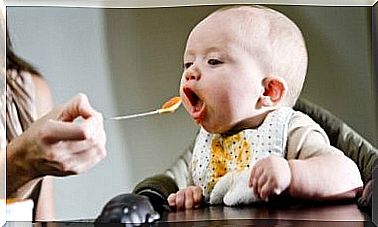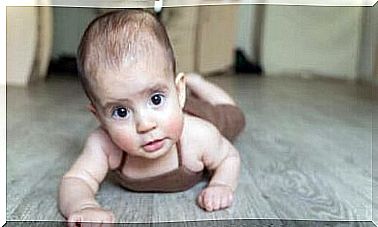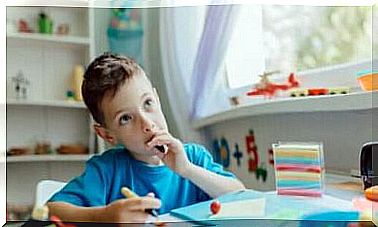Being A Mother Of An Attention Deficit Child

In the 21st century, we are used to being exposed to a plethora of information irrelevant to our survival. Children in our society need to learn, from the first years of life, to live with various attractive stimuli that can cause loss of attention and concentration. Therefore, it is not strange to think that it is increasingly common to be a mother of a child with attention deficit.
These mothers need to make an extra effort to understand and support their children, looking for information to adequately meet all of their needs.
What is attention deficit?
When a child has significant and incapacitating attention difficulties, he is said to have an Attention Deficit Disorder. This is a developmental disorder that is a persistent pattern of behavior, characterized by inattention, disorganization and the possible appearance of hyperactivity and impulsivity.

According to the fifth edition of the Diagnostic and Statistical Manual of Mental Disorders (DSM-5), to confirm attention deficit, the child must meet six or more of the following symptoms of inattention for at least 6 months, frequently:
- She doesn’t pay enough attention to detail and makes mistakes due to careless schoolwork.
- It is difficult to pay attention to tasks or playful or recreational activities.
- She doesn’t seem to hear when talking to her directly.
- Does not follow instructions and does not finish schoolwork.
- Has difficulty organizing tasks and activities.
- Avoids, dislikes, or becomes unenthusiastic about starting tasks that require continuous mental effort.
- Lose things needed for tasks or activities.
- She is easily distracted by irrelevant stimuli.
- Forgets or is careless with daily activities.
Being a mother of a child with attention deficit
Currently, there are many mothers who have children with attention deficit, but there is no need to worry. You just need to take on the problem and help the little one in their daily lives, carrying out a series of simple educational and pedagogical guidelines, so that your child can face the problems and achieve an adequate evolutionary development.
Guidelines for helping your child
Attention deficit and disorganization can make the child unable to continue performing their tasks, that they seem not to be listening or that they constantly lose objects. This type of action can influence the appearance of different problems of:
- Learning
- Behavior
- Social skills.
If you have a child with attention deficits, you should help alleviate these problems by following a series of guidelines, such as those described below.

On the one hand, a main and basic measure that must be taken is the creation of a structured and organized environment at home, so that the child can establish schedules and routine habits. On the other hand, it is necessary to provide games and activities that stimulate your concentration, such as:
- Puzzle.
- Books.
- Mazes.
- Building blocks.
- Hunting words.
Also, when talking to her, placing a request, or placing an order, it is necessary to use clear and direct communication. So it’s convenient:
- Call the child by name when he is around and talk to him looking in the eye and in a calm tone.
- Explain the instructions clearly and precisely. If necessary, ask her to repeat what was said to make sure she understood correctly.
- Use short, direct sentences and give instructions one at a time, without contradicting yourself.
- Maintain a safe distance and avoid physical contact when making requests.
Finally, it is worth noting that, when the child does their tasks and shows a good behavior, it is very important to apply positive reinforcement through praise, hugs, kisses or any other affective gesture. Thus, the child will feel satisfied and will probably repeat the desired behaviors again.









